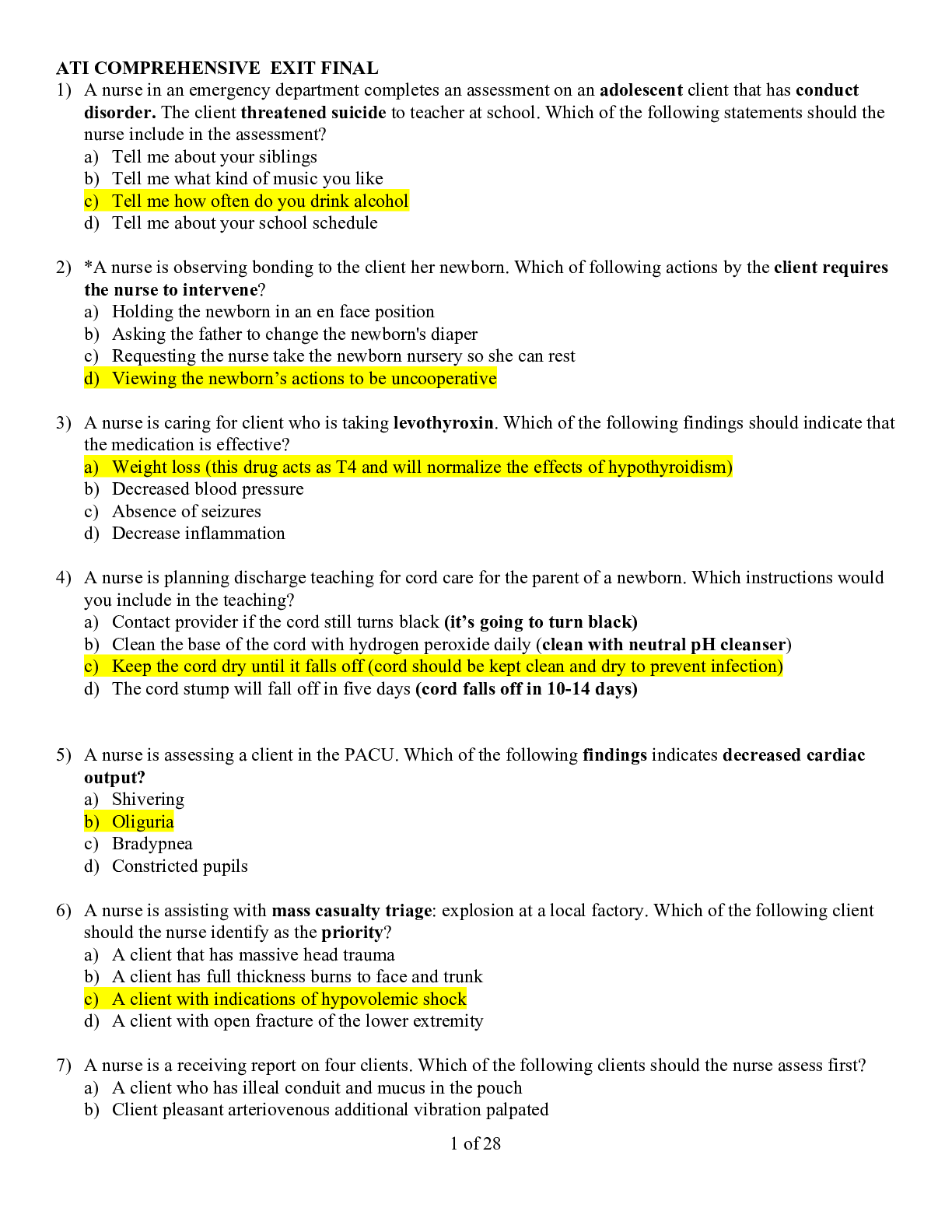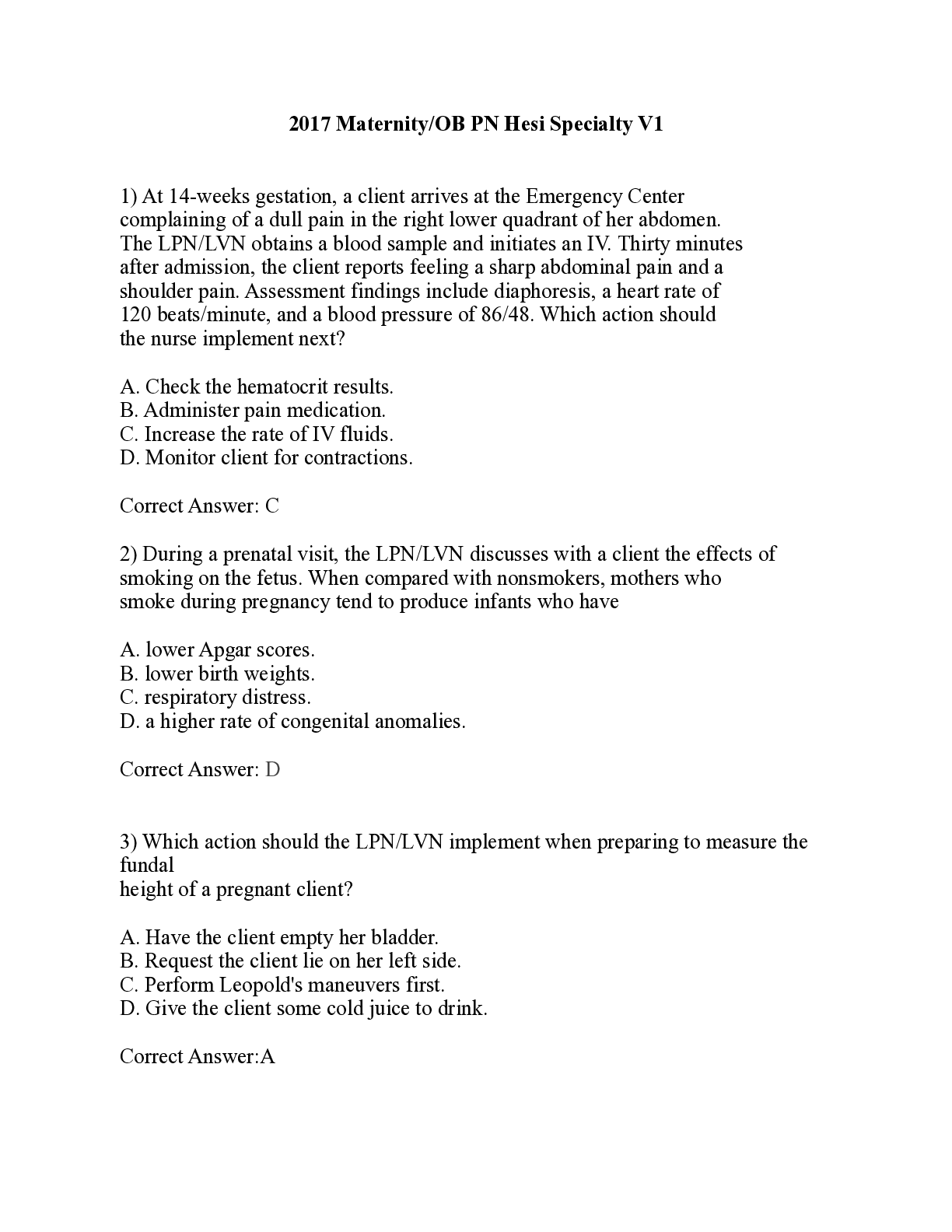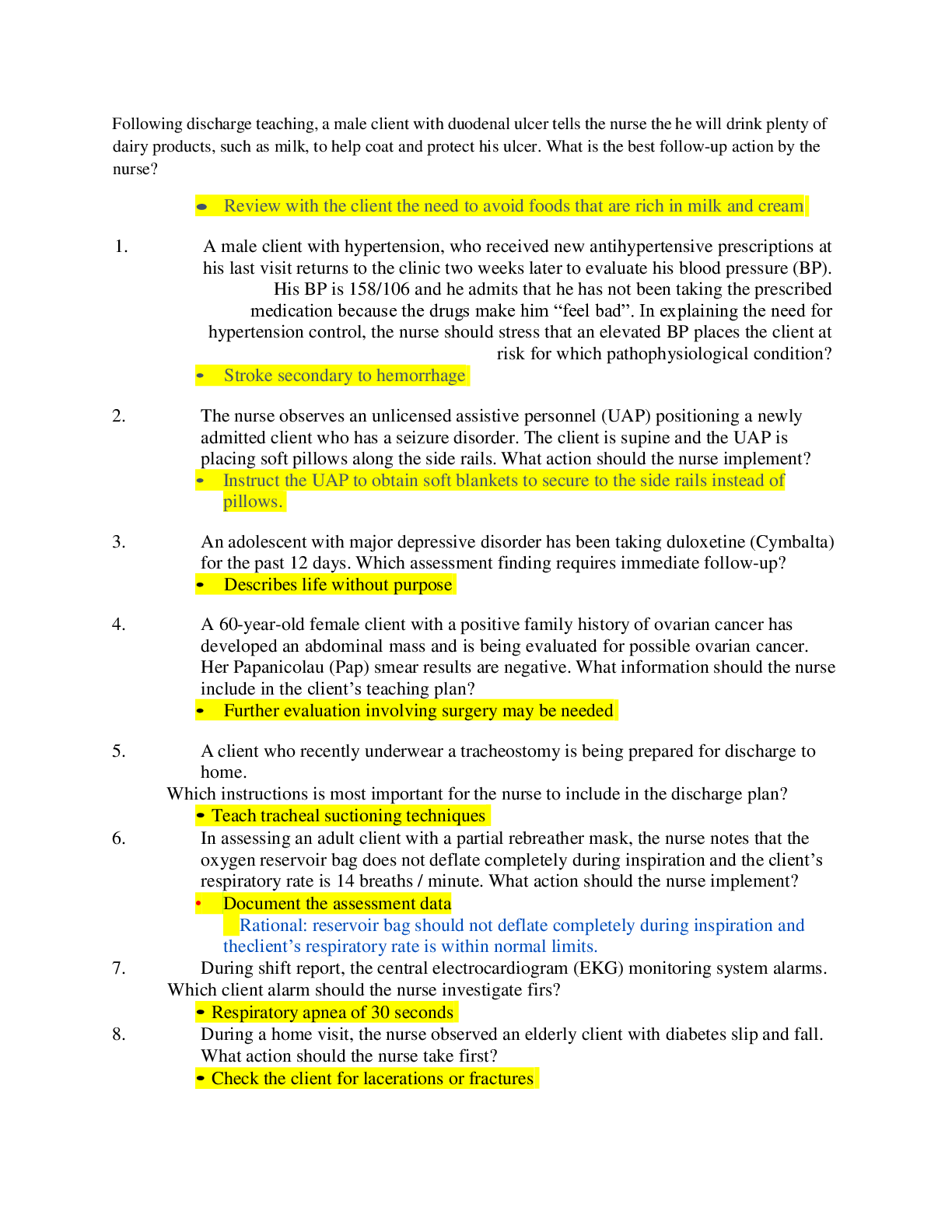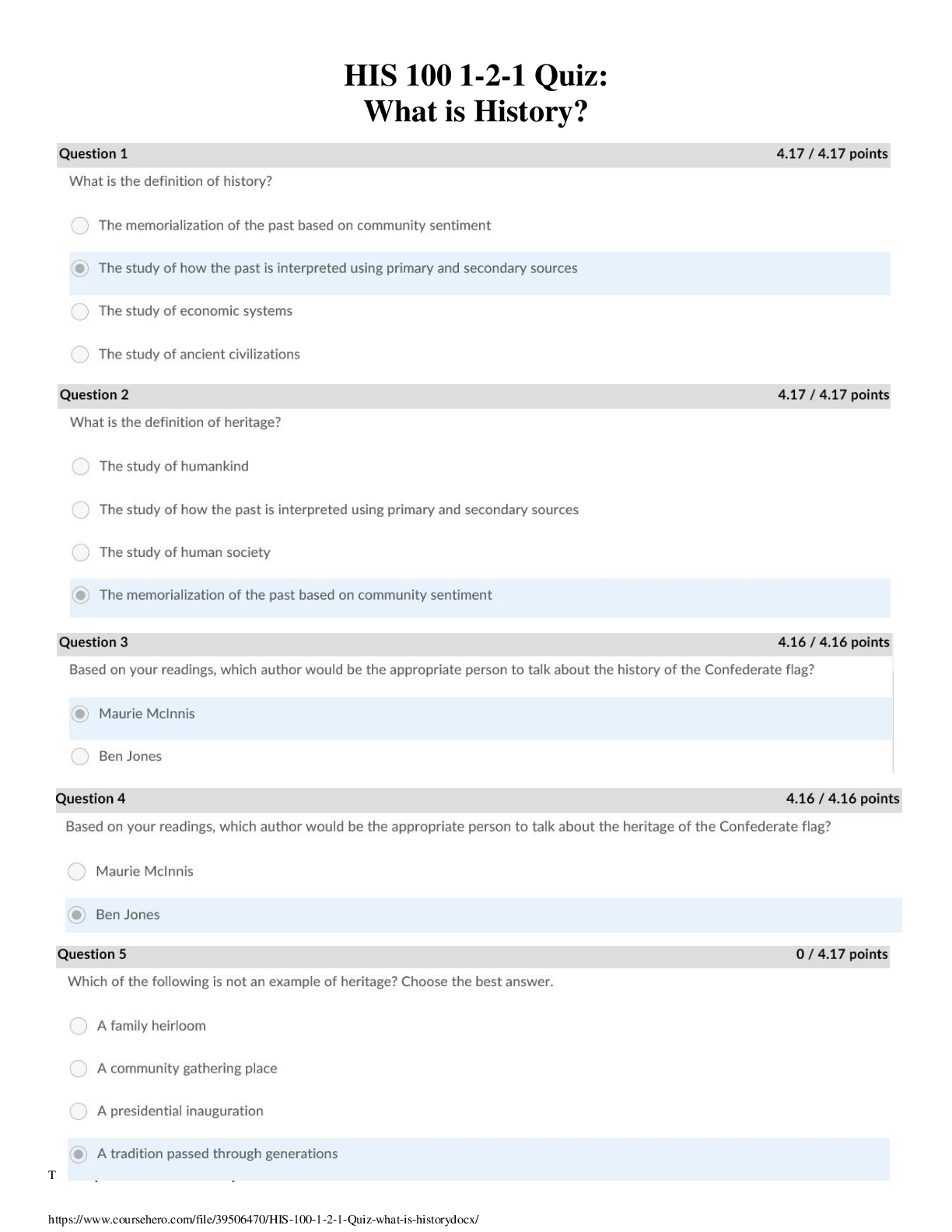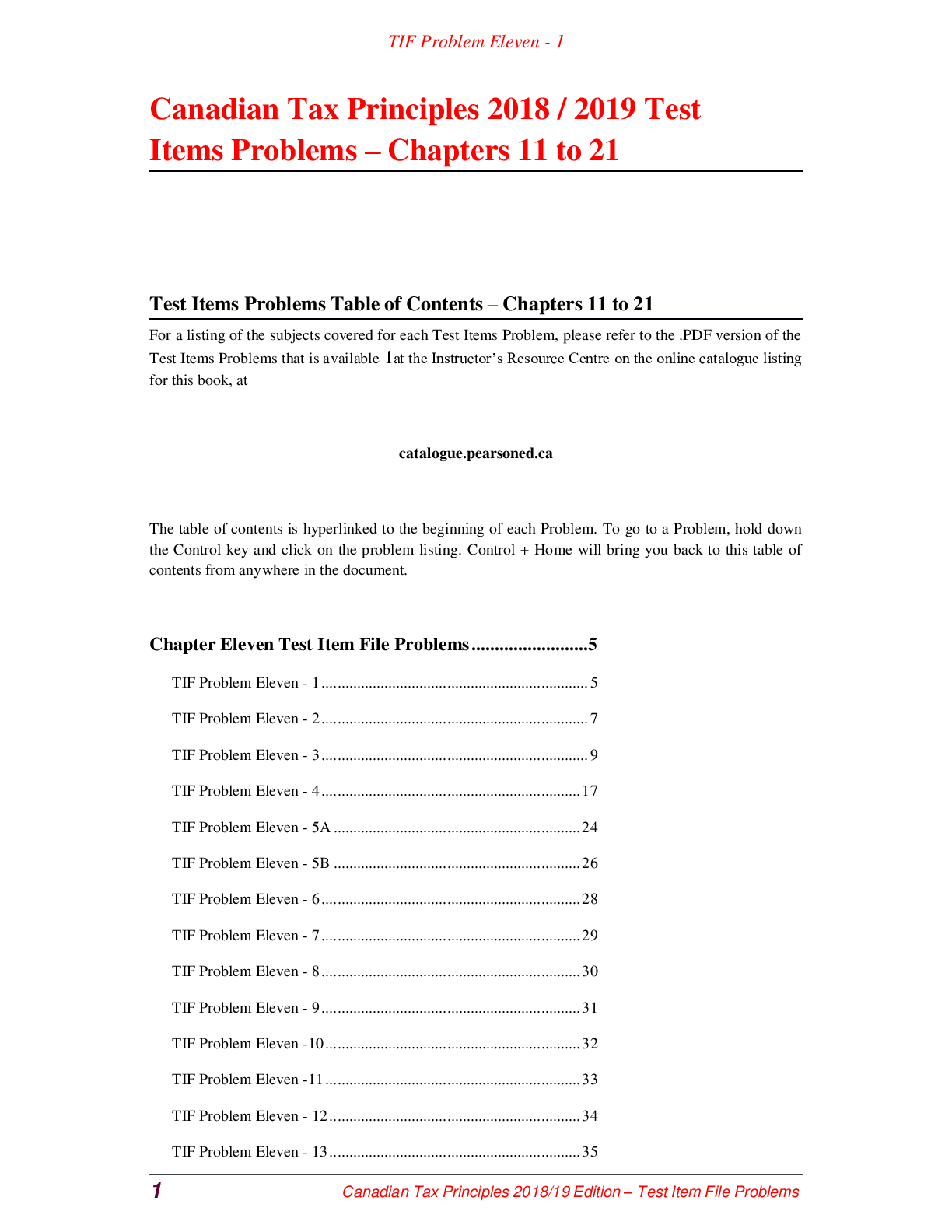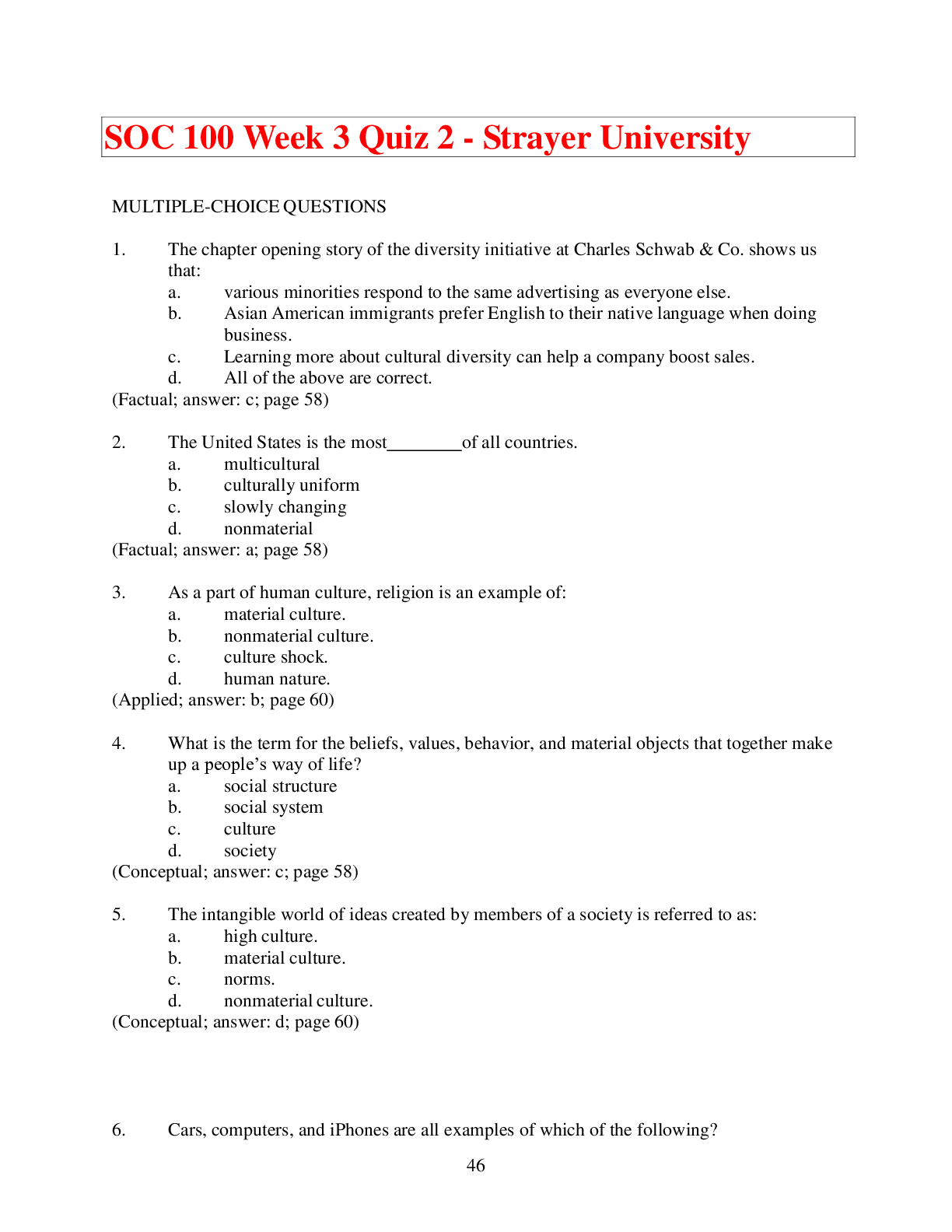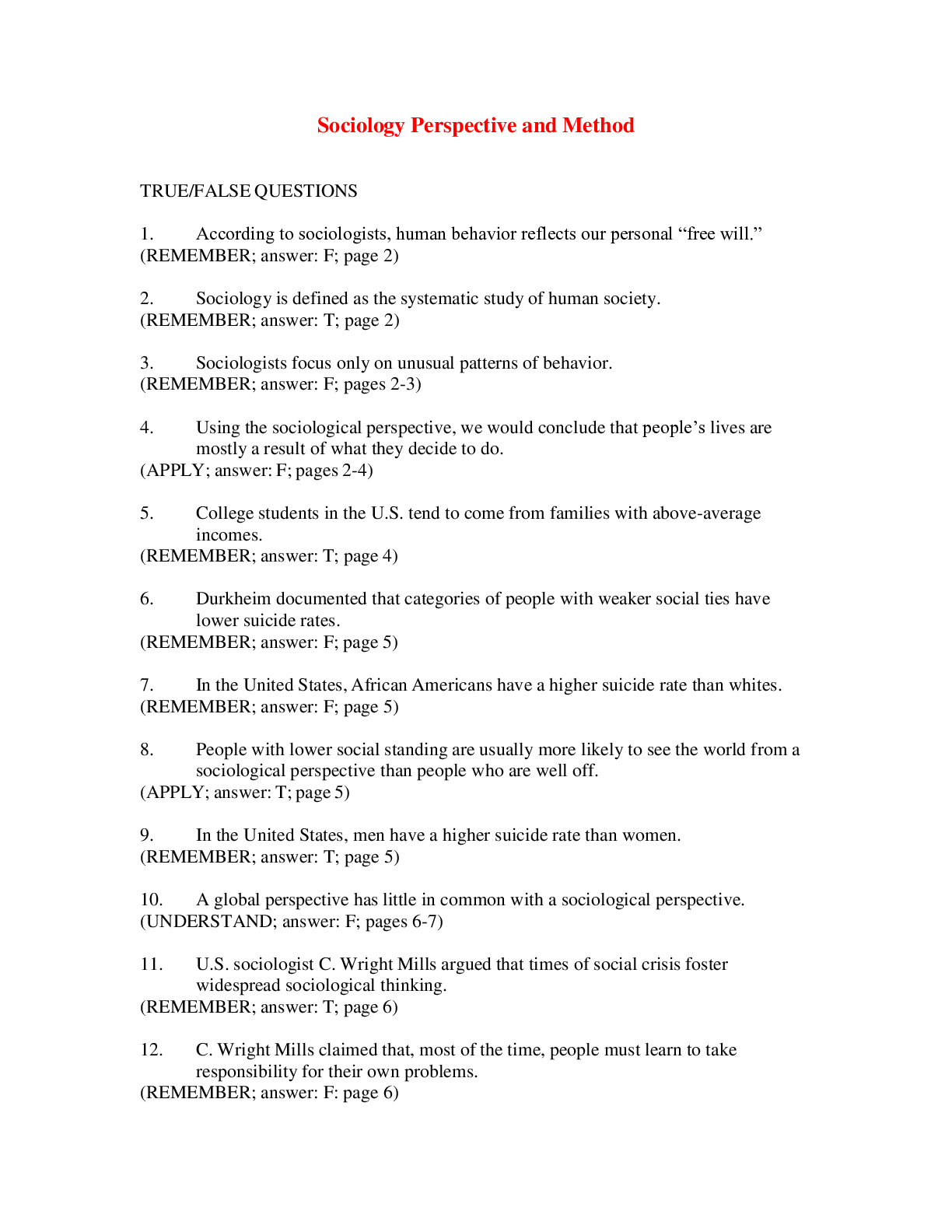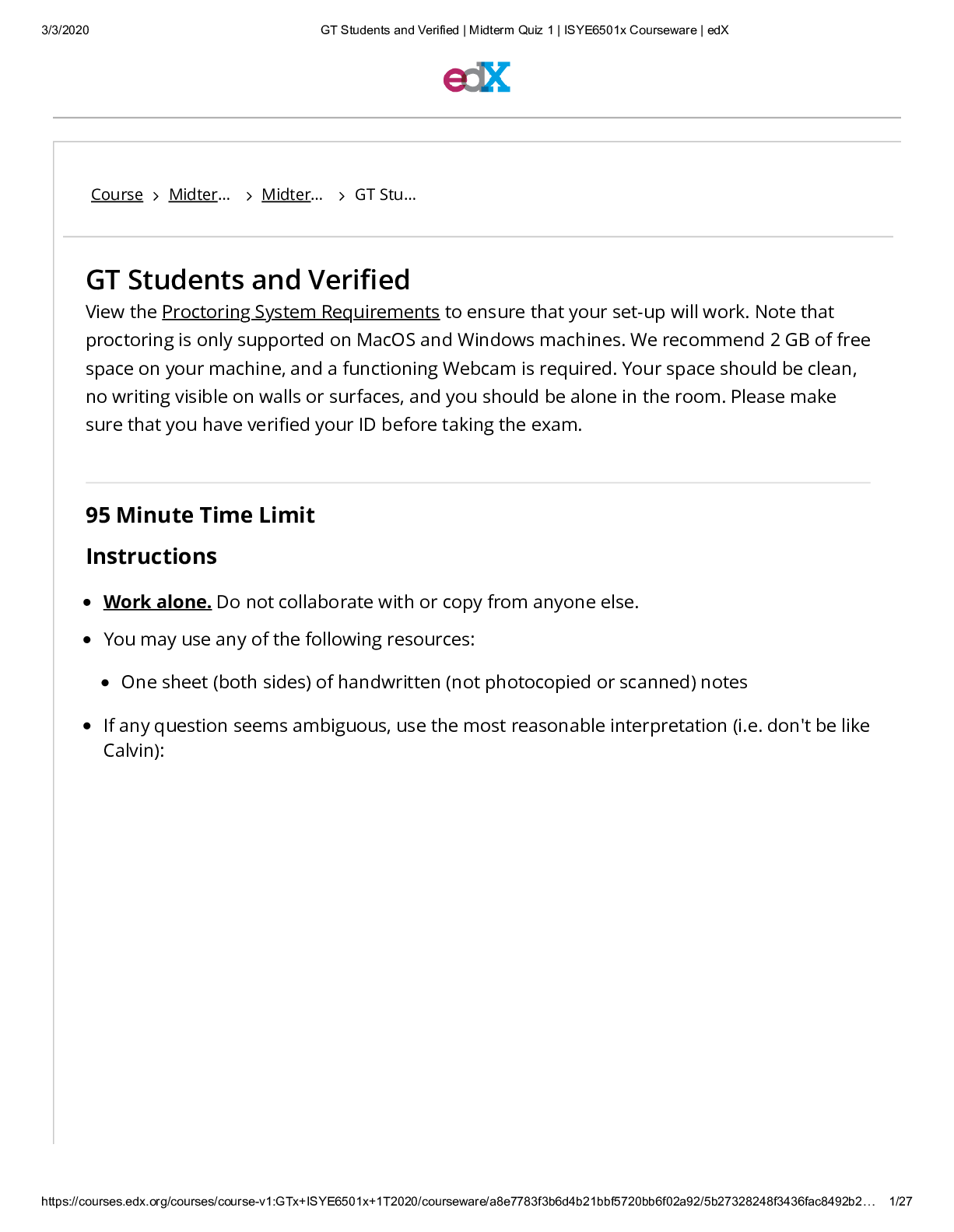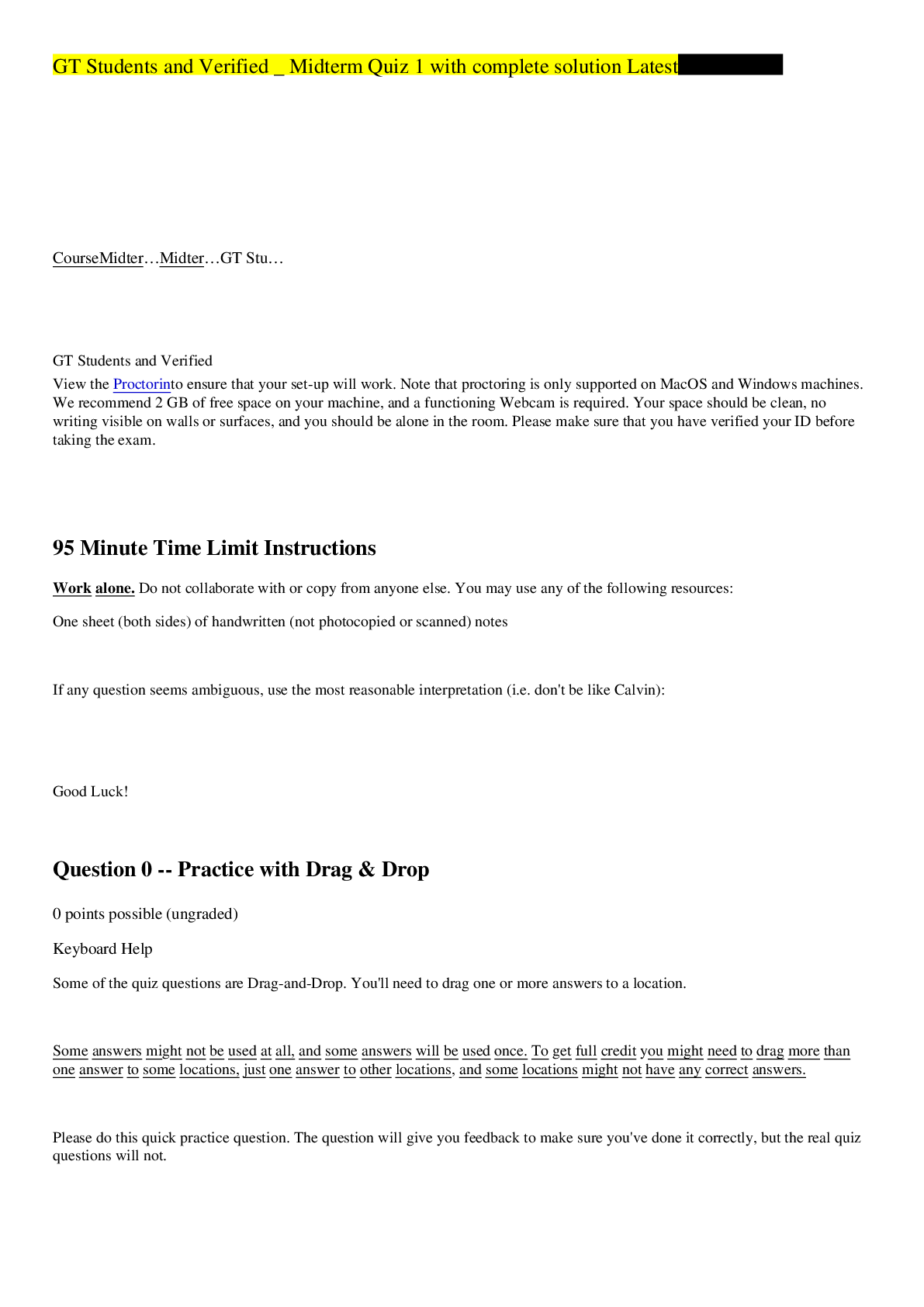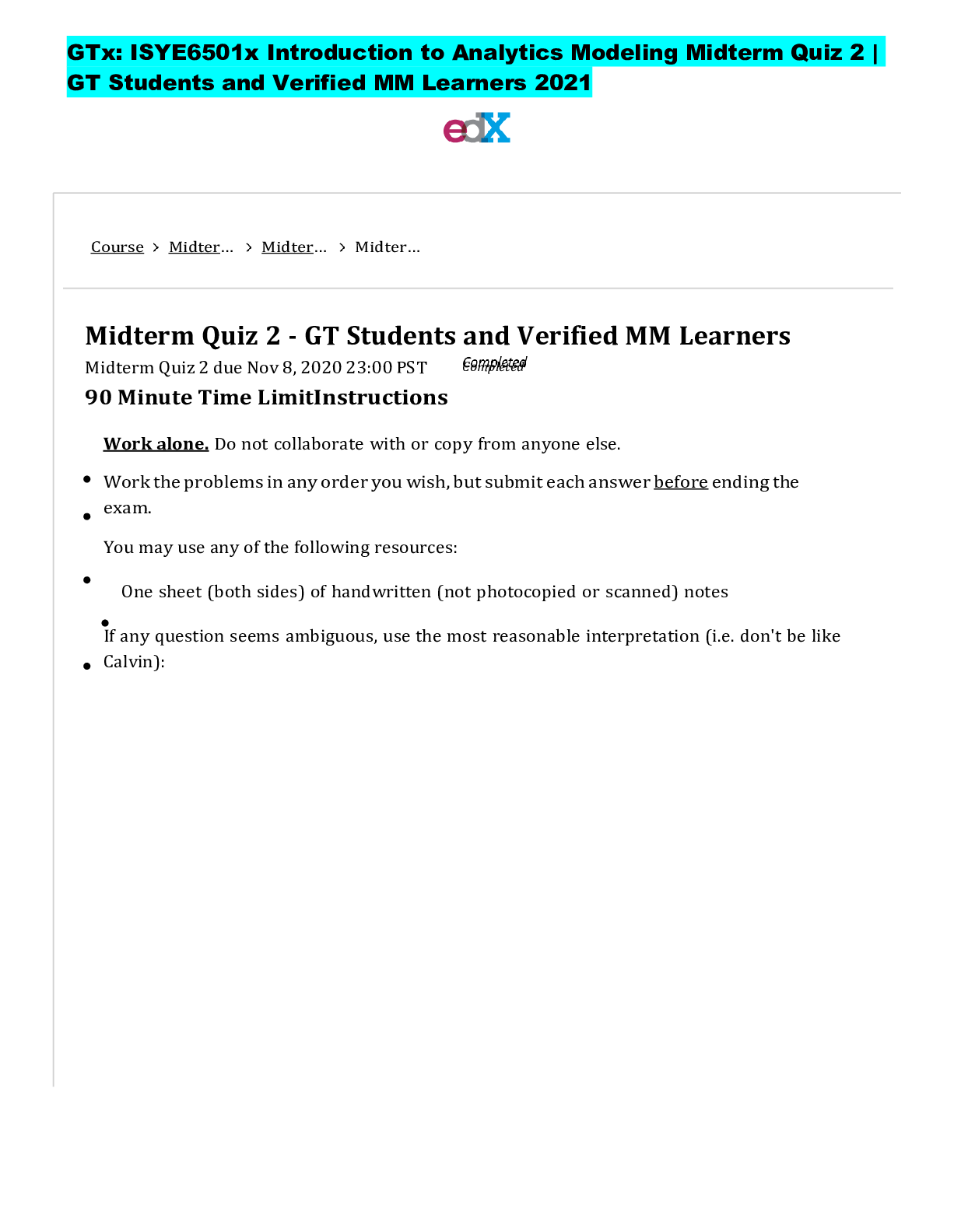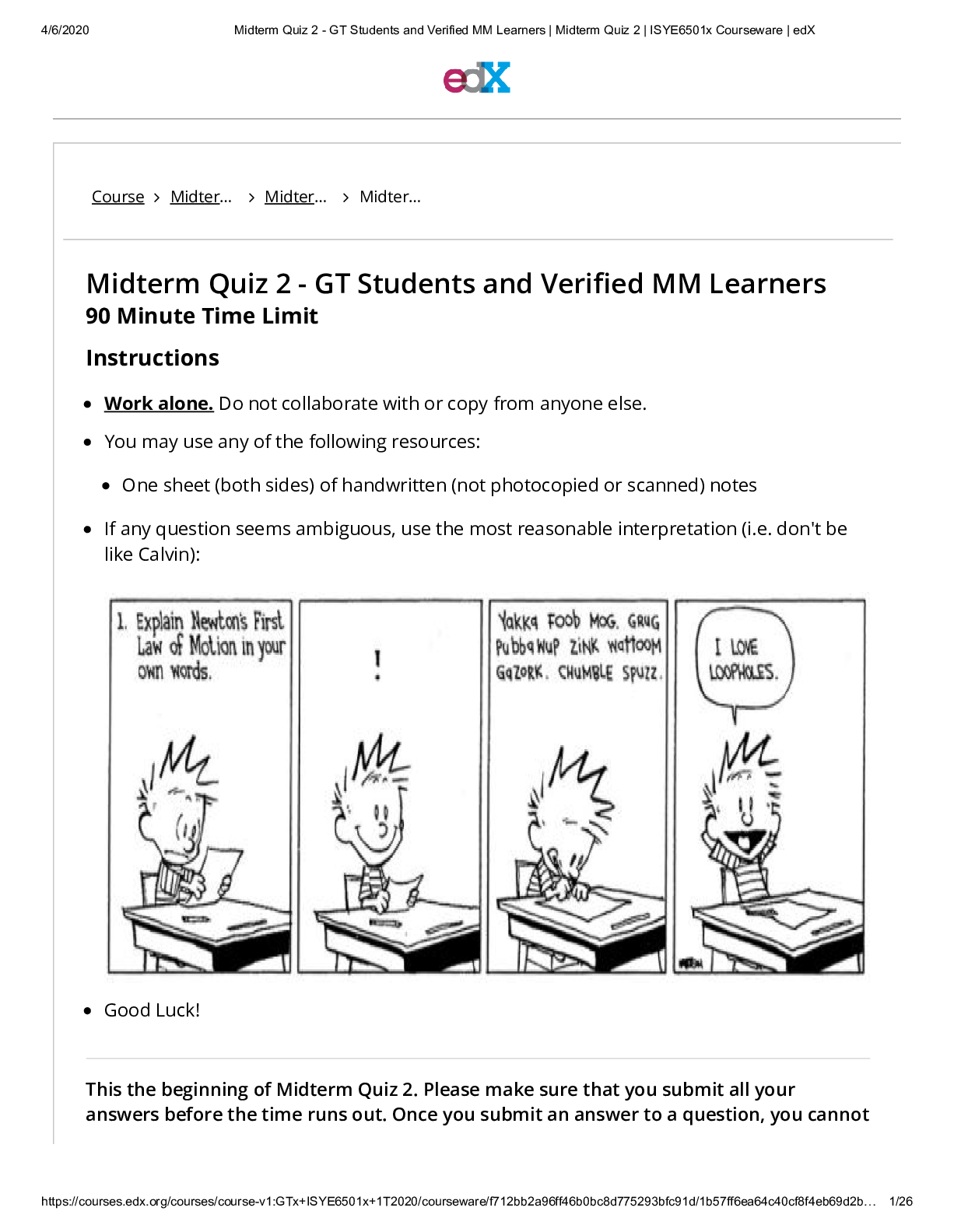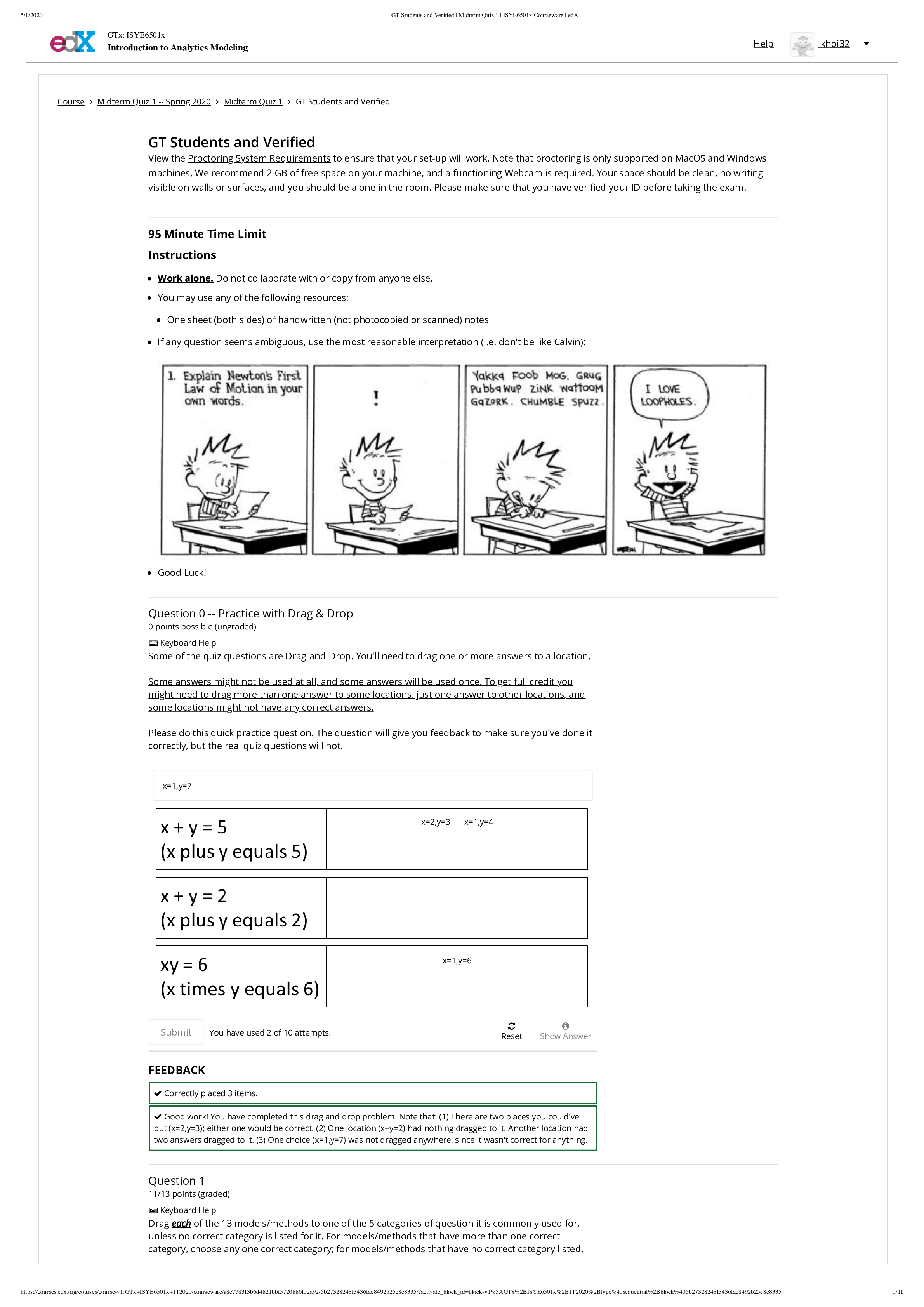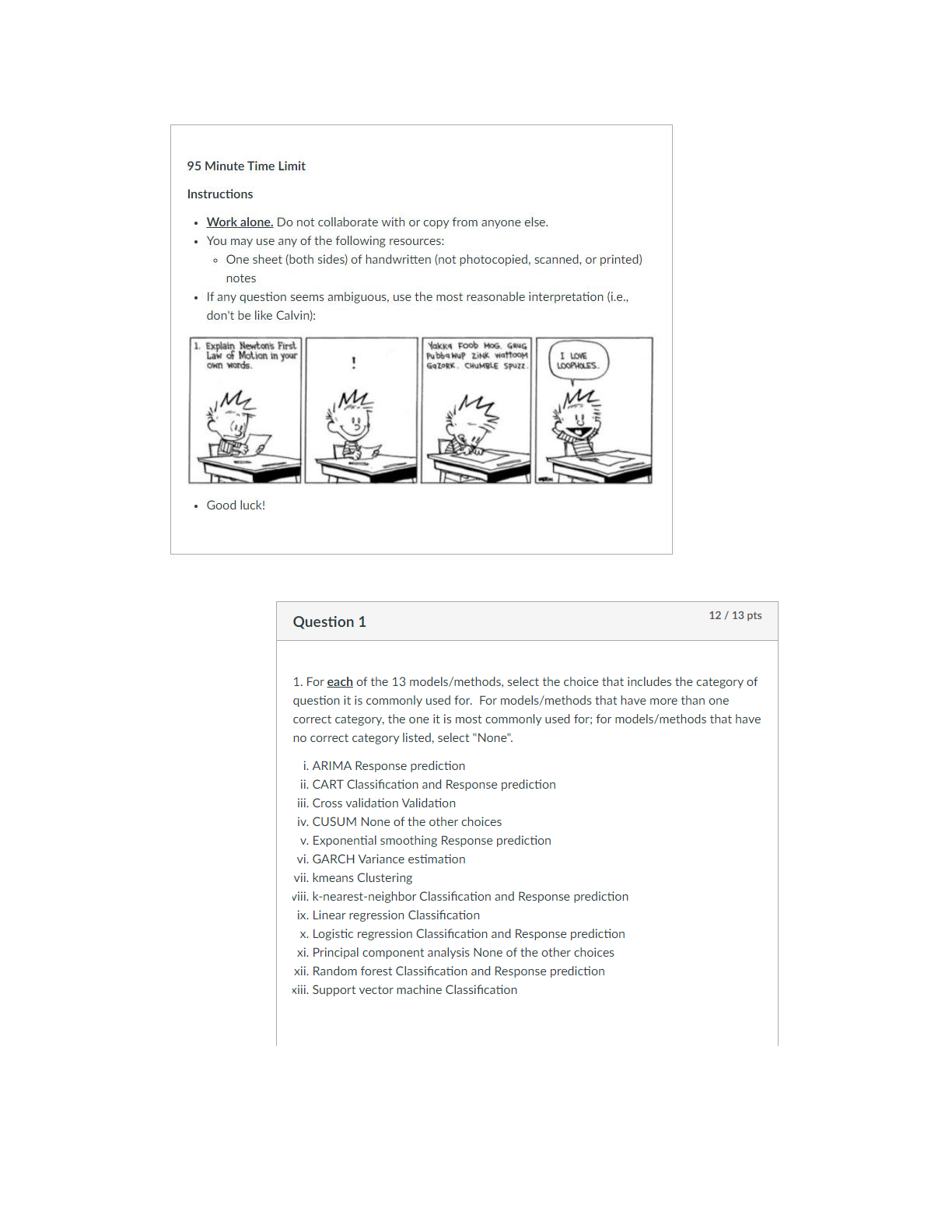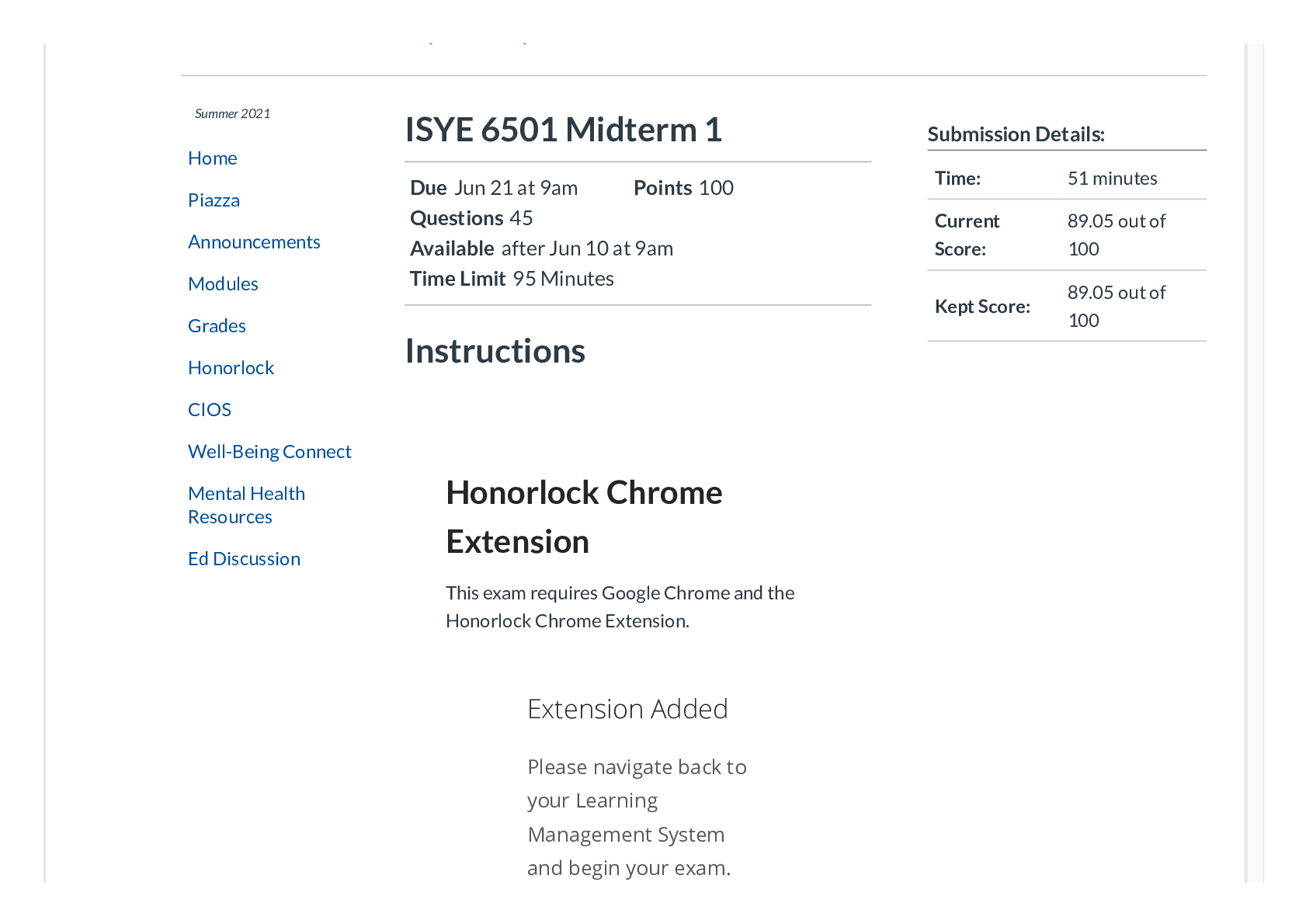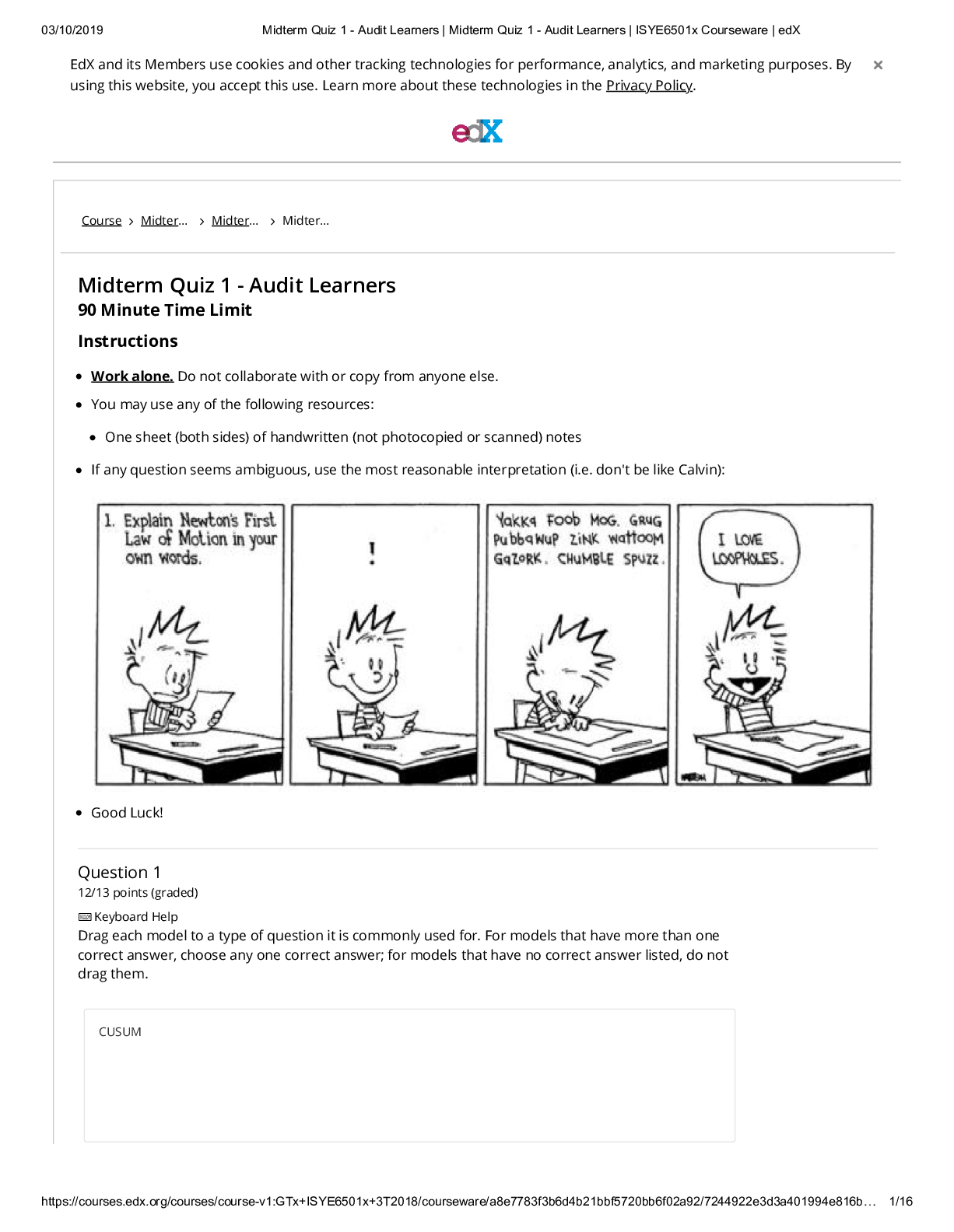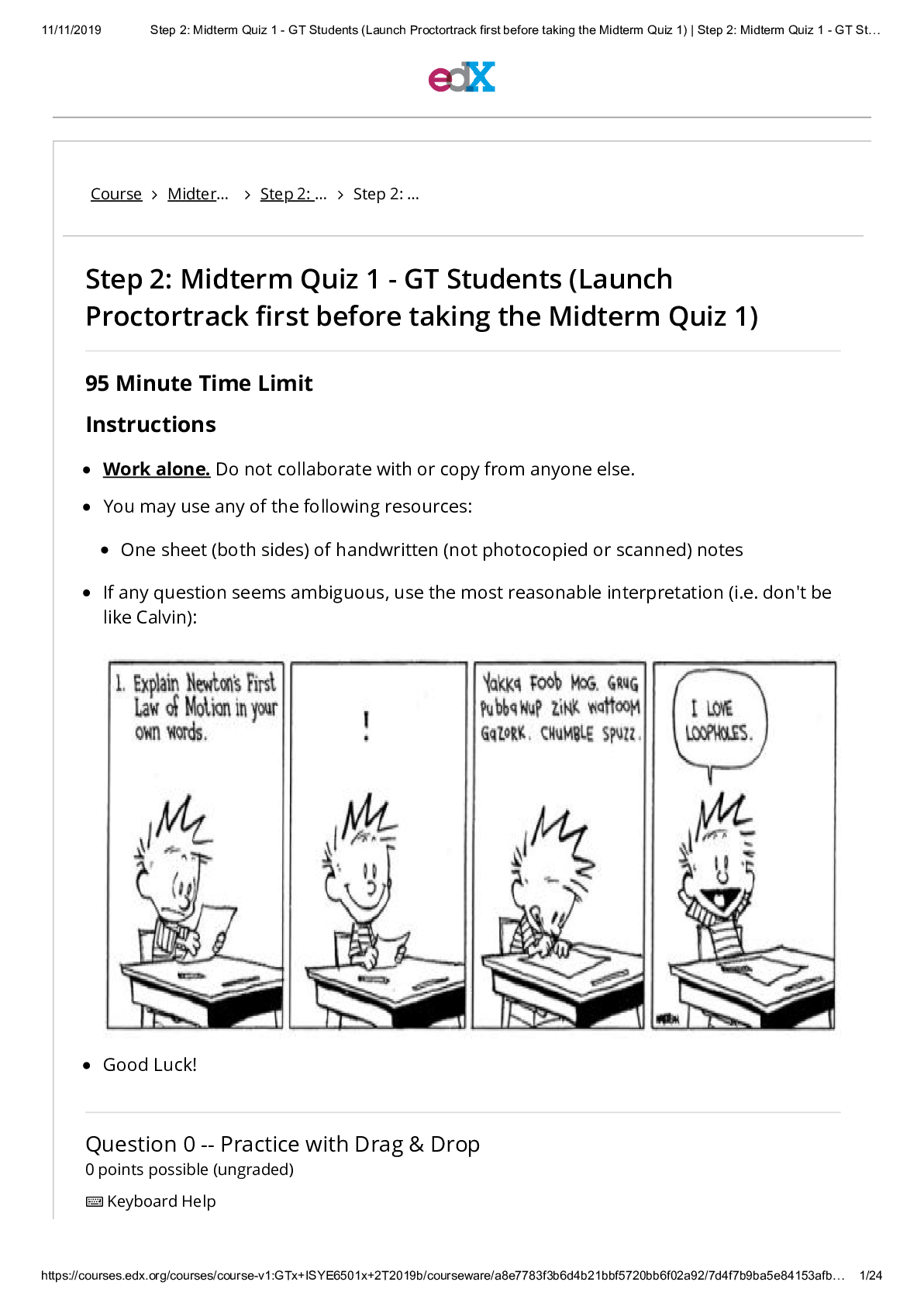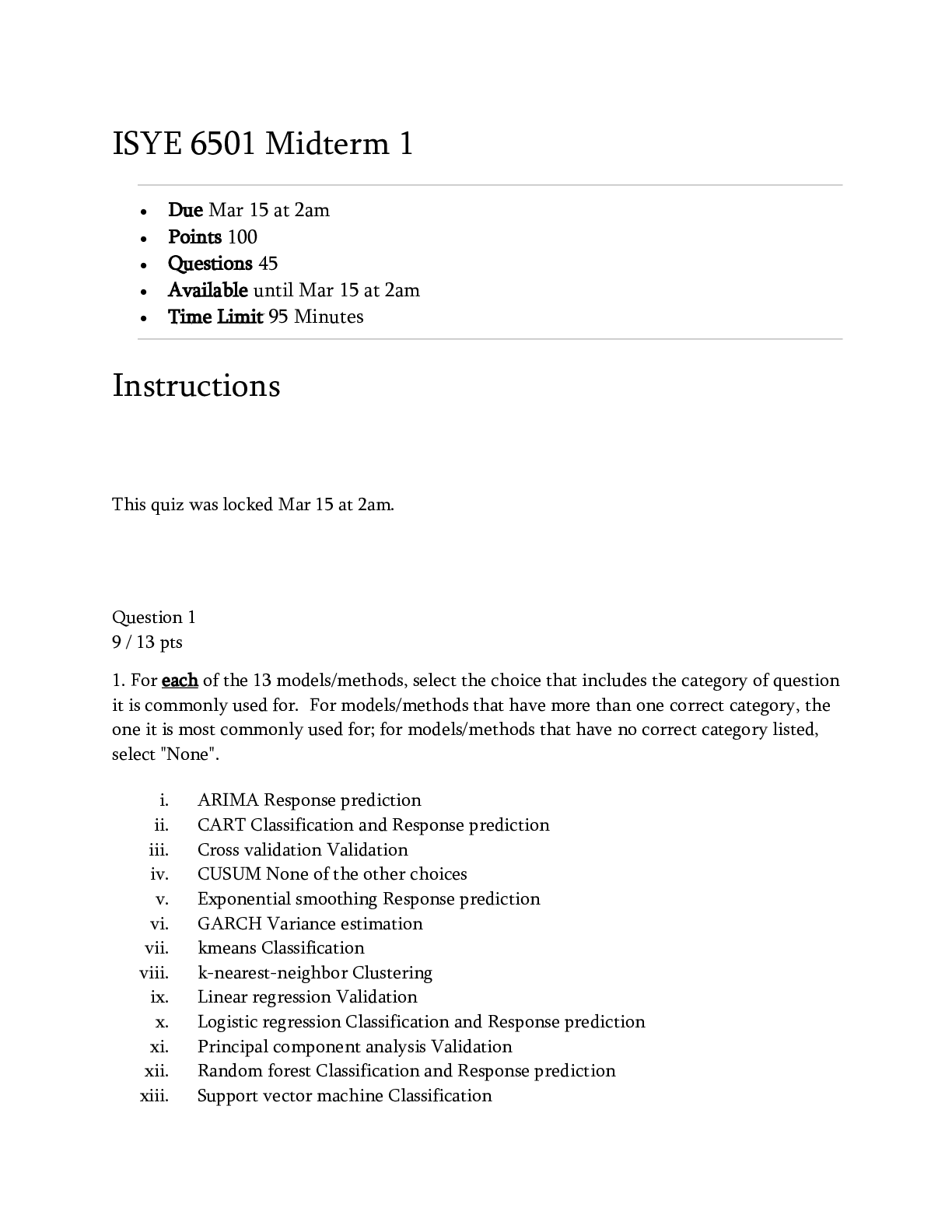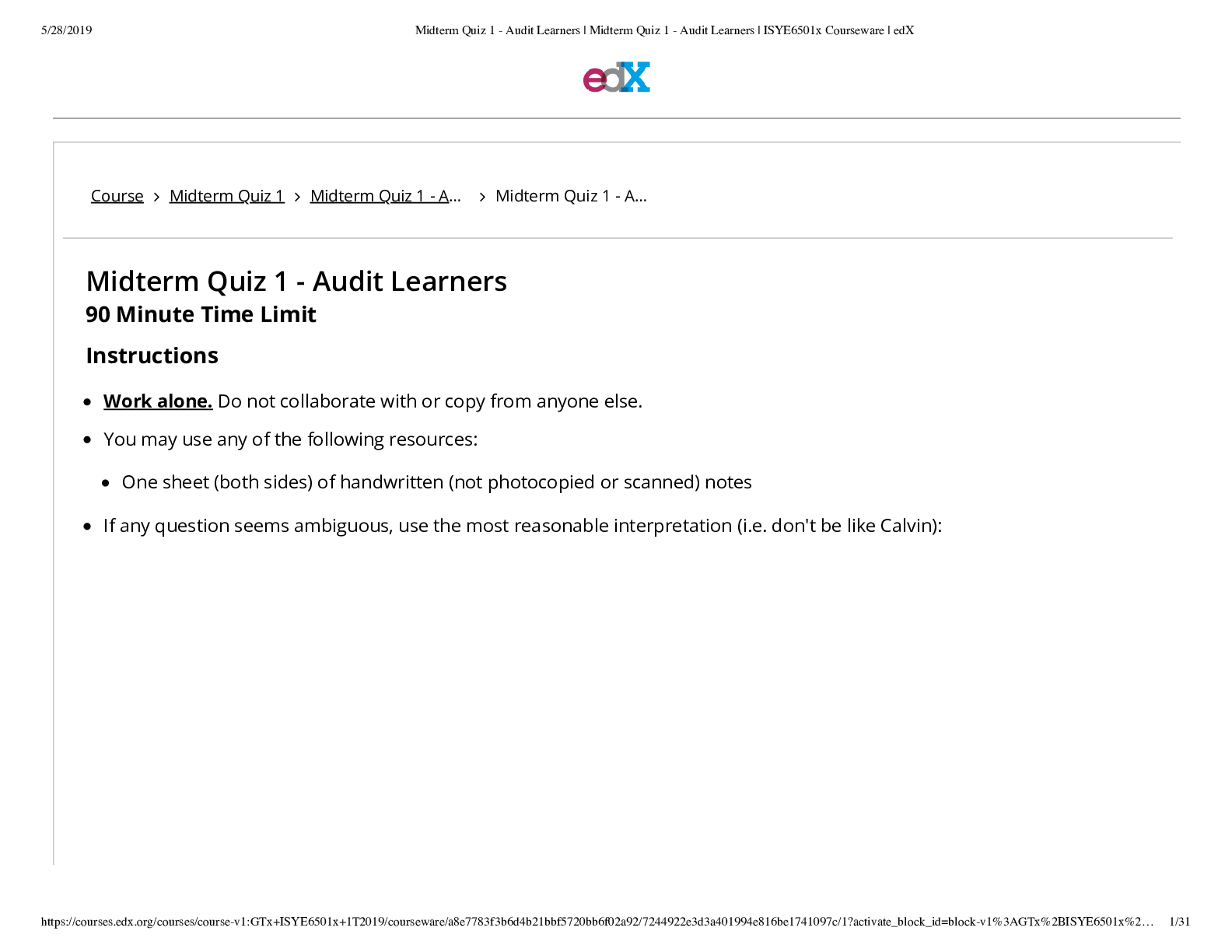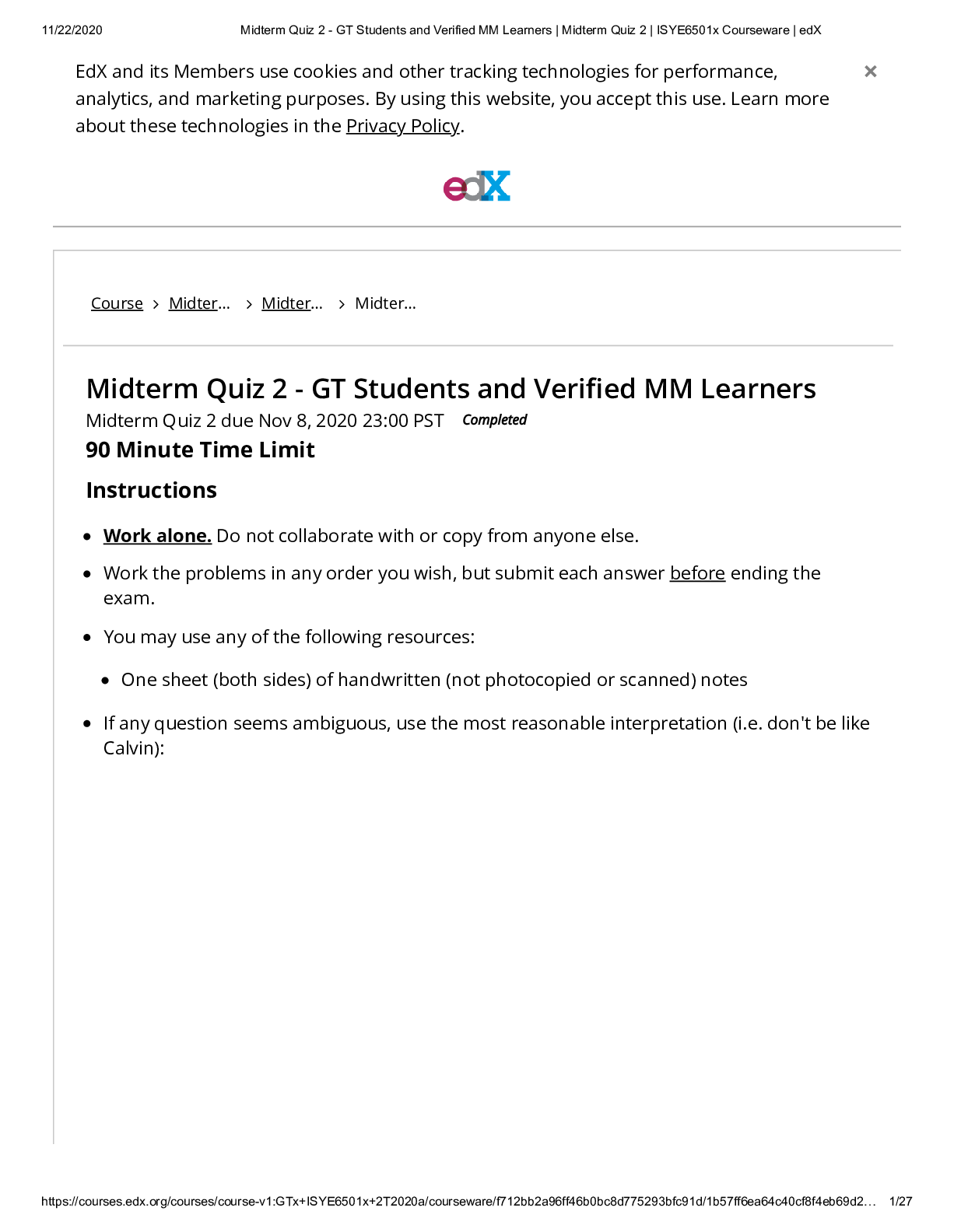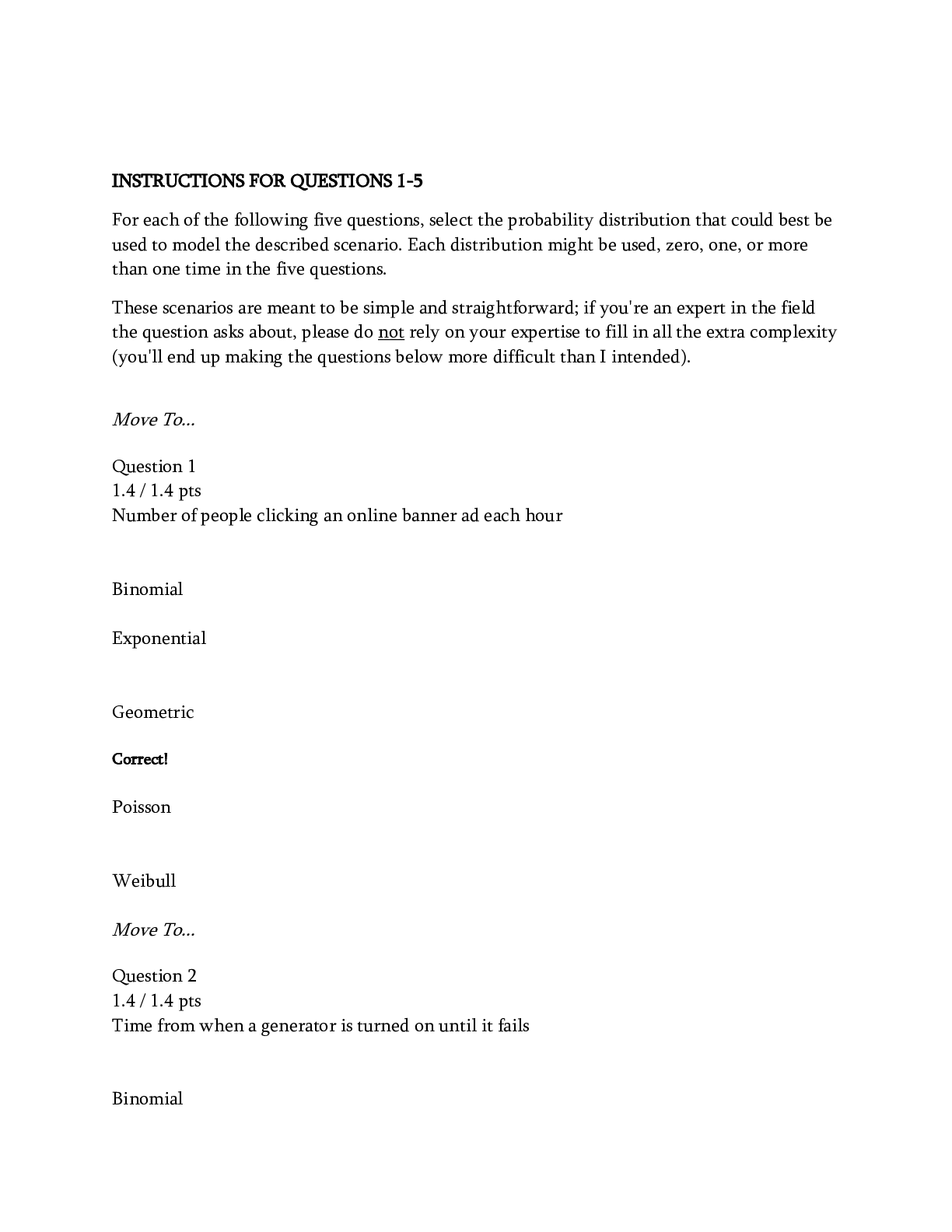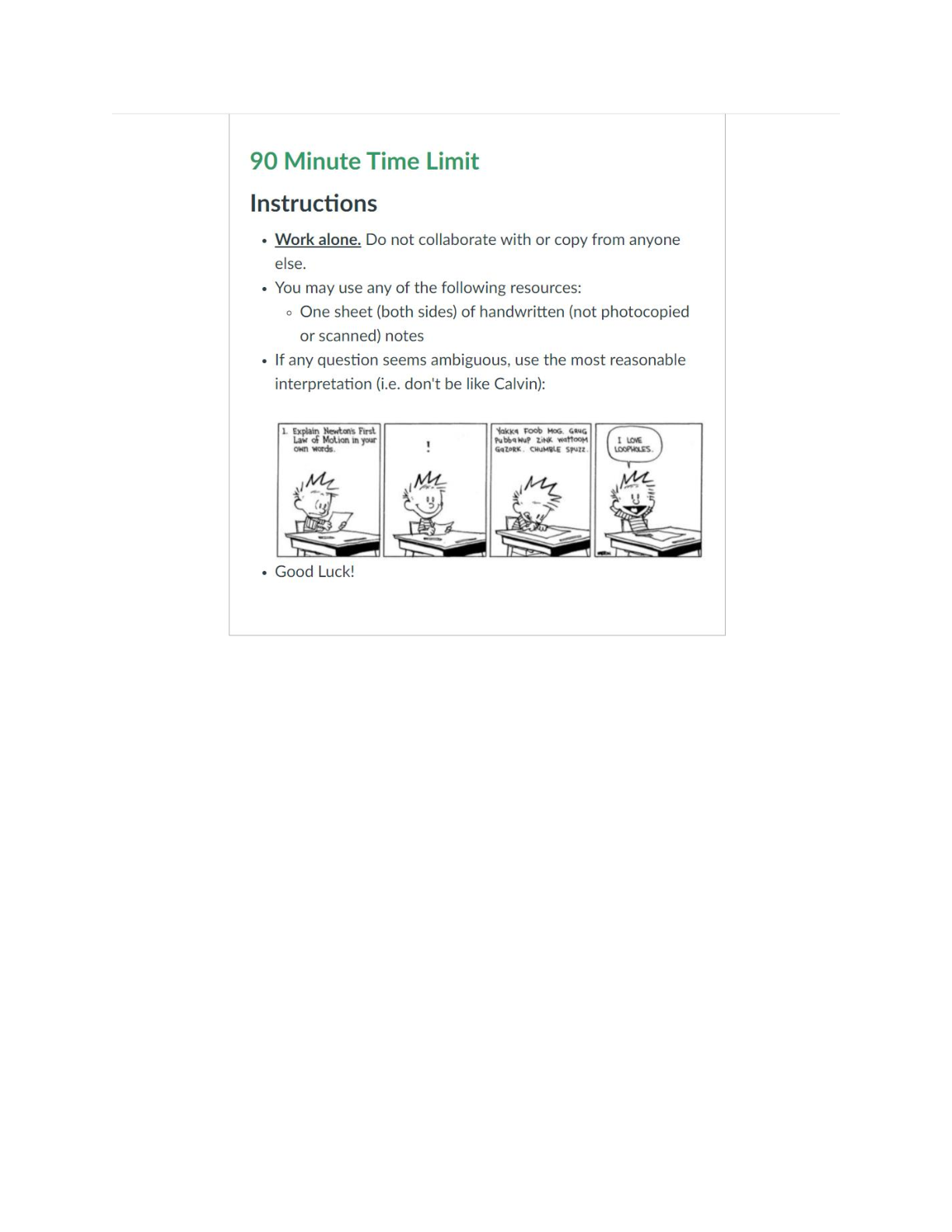Engineering > EXAM > GTx: ISYE6501x Introduction to Analytics Modeling Midterm Quiz 2 - GT Students and Verified MM Learn (All)
GTx: ISYE6501x Introduction to Analytics Modeling Midterm Quiz 2 - GT Students and Verified MM Learners
Document Content and Description Below
Midterm Quiz 2 - GT Students and Verified MM Learners 90 Minute Time Limit Instructions Work alone. Do not collaborate with or copy from anyone else. You may use any of the following resources: One... sheet (both sides) of handwritten (not photocopied or scanned) notes If any question seems ambiguous, use the most reasonable interpretation (i.e. don't be like Calvin): Good Luck! This the beginning of Midterm Quiz 2. Please make sure that you submit all your answers before the time runs out. Once you submit an answer to a question, you cannot change it. There is no overall Submit button. Information for Question 1 There are five questions labeled "Question 1." Answer all five questions. For each of the following five questions, select the probability distribution that could best be used to model the described scenario. Each distribution might be used, zero, one, or more than one time in the five questions. Question 1 1.4/1.4 points (graded) Number of days in a year where the temperature is more than 3 degrees higher than forecast Binomial You have used 1 of 1 attempt Question 1 1.4/1.4 points (graded) Number of phone calls made by a telemarketer until one is answered Geometric You have used 1 of 1 attempt Question 1 1.4/1.4 points (graded) Time from the beginning of Fall until the first snowflake is seen Weibull You have used 1 of 1 attempt Question 1 1.4/1.4 points (graded) Time from when a house is put on the market until the first offer is received Weibull You have used 1 of 1 attempt Question 1 1.4/1.4 points (graded) Time from when a generator is turned on until it fails You have used 1 of 1 attempt Questions 2a, 2b 5.0/10.0 points (graded) Five classification models were built for predicting whether a neighborhood will soon see a large rise in home prices, based on public elementary school ratings and other factors. The training data set was missing the school rating variable for every new school (3% of the data points). Because ratings are unavailable for newly-opened schools, it is believed that locations that have recently experienced high population growth are more likely to have missing school rating data. Model 1 used imputation, filling in the missing data with the average school rating from the rest of the data. Model 2 used imputation, building a regression model to fill in the missing school rating data based on other variables. Model 3 used imputation, first building a classification model to estimate (based on other variables) whether a new school is likely to have been built as a result of recent population growth (or whether it has been built for another purpose, e.g. to replace a very old school), and then using that classification to select one of two regression models to fill in an estimate of the school rating; there are two different regression models (based on other variables), one for neighborhoods with new schools built due to population growth, and one for neighborhoods with new schools built for other reasons. Model 4 used a binary variable to identify locations with missing information. Model 5 used a categorical variable: first, a classification model was used to estimate whether a new school is likely to have been built as a result of recent population growth; and then each neighborhood was categorized as "data available", "missing, population growth", or "missing, other reason". a. If school ratings cannot be reasonably well-predicted from the other factors, and new schools built due to recent population growth cannot be reasonably well-classified using the other factors, which model would you recommend? b. In which of the following situations would you recommend using Model 5? [All predictions and classifications below are using the other factors.] You have used 1 of 1 attempt Answers are displayed within the problem Information for Question 3 In a diet problem (like we saw in the lessons and homework), let xi be the amount of food i in the solution (xi maximum amount that can be eaten of any food. >= 0), and let M be the Suppose we added new variables yi that are binary (i.e., they must be either 0 or 1): if food i is eaten in the solution, then it is part of the solution (yi = 1); otherwise yi = 0. There are five questions labeled "Question 3." Answer all five questions. For each of the following five questions, select the mathematical constraint that best corresponds to the English sentence. Each constraint might be used, zero, one, or more than one time in the five questions. Question 3 1.4/1.4 points (graded) [Show More]
Last updated: 1 year ago
Preview 1 out of 11 pages

Also available in bundle (1)

Georgia Institute of Technology| ISYE 6501 Introduction to Analytics Comprehensive Bundle For Grade A
Georgia Institute of Technology| ISYE 6501 Introduction to Analytics Comprehensive Bundle For Grade A
By Quiz Merchant 2 years ago
$30
16
Reviews( 0 )
Document information
Connected school, study & course
About the document
Uploaded On
Apr 05, 2021
Number of pages
11
Written in
Additional information
This document has been written for:
Uploaded
Apr 05, 2021
Downloads
1
Views
175


